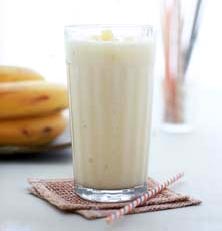|
| Help | |
| You are here: Rediff Home » India » Get Ahead » Living » Health |
|
While a few scientific studies might back this diet fad as an effective weight loss strategy, it is not the bandwagon you want to jump on to right now. With the Mumbai marathon just around the corner on January 16, carbohydrates are your best friend. Carbohydrate rich foods are absolutely the best fuel for endurance workouts. Abandoning them at this time would end up costing you dearly. Why carbs are a must for marathoners ~ Carbohydrates are stored in the muscles and liver as a reserve source of energy known as glycogen. These stored carbohydrates end up being a large source of fuel during the marathon. Your goal over these last few days should be to make sure your glycogen stores are full, thus giving you a full tank of gas to run on. ~ If you have been following a balanced diet with enough calories to maintain a healthy body weight, your glycogen stores should be in good shape. Sure, the race is just a few days away. And it might be a little too late to make any drastic training changes at this point. But if your nutritional habits during these last few days are upto the mark, your body will have sufficient fuel to perform at its full potential. Here's how: 1. Make sure you consume adequate carbohydrate rich foods during the last few days before the race. Make sure you get an adequate amount of fibre by having whole grains (brown rice, whole wheat bread, oats) as opposed to refined carbs (white bread, crackers, pasta). Fibre helps maintain stable blood sugar levels, promote regular bowel movements, as well as various other health benefits like reducing cholesterol. But make sure you don't overdo the fibre. Excess fibre consumption could lead to gas and diarrhoea. And those aren't the 'runs' you have been training for! 2. Eat tried and true sources of carbohydrates. Changing your food choices suddenly a few days before the event could lead to intestinal problems, diarrhoea and gas. Just eat tried and true carbohydrate sources that you have enjoyed throughout your training period. 3. This is not the time for last minute dieting and cutting calories, especially in the form of carbohydrates. If you have been training consistently, as you should have been the last few months, you will have achieved the weight loss benefits of training for this marathon. Now is the time to provide your body with sufficient fuel to function at its full potential. 4. Limit your consumption of fats (butter, full fat dairy, cooking oils, etc). They might make your food taste great but they will fill up just your stomach, not your glycogen stores. Limit your fat intake to unsaturated fats -- the kinds found in nuts and seeds, fish, olive oil, etc. 5. Don't forget about protein. While carbohydrates are important as a source of fuel, proteins will help repair muscle tissue and prevent muscle breakdown. 6. Try to have a good carb-based meal the night before the marathon. Again, a word of warning: no Atkins diet type meals of only salad and steak. Before the race Trying to eat all your carbs the morning of the run if you haven't been doing it all week won't help. The food you eat on the morning of the run will certainly give you some energy and help keep your blood glucose stable for a while, but it won't be add to your glycogen stores. So have a small carbohydrate meal -- it should be low in fibre and fat -- to prevent delay in digestion around two hours (or as your tolerance indicates) before the event. Here are a some examples of a pre-race carbohydrate meal: Cold cereal, a glass of skim milk and a banana. OR Two slices of wholewheat bread with jam and a fruit. OR Pasta with tomato sauce. OR One bagel and a glass of orange juice. Experiment with pre-race meal choices before the big day to find what works best for you. During the race 1. Your number one priority should be to consume adequate fluids during the race. Don't wait for thirst sensations to kick in. Just keep sipping water during the race. 2. Consuming carbohydrate sports drinks or gels might prove beneficial for the races that last for more than one hour (the 21 km and 42 km races). Do realise that if the carb concentration is too high in the drinks, it will be absorbed slowly and may pull fluid into your gut. This will lower your blood volume and dehydrate you. If the carb levels are too low, not enough carbs will get to your muscles and you may limp through the final miles of the marathon with glycogen-depleted legs. The commercial sports drinks are formulated just right and thus end up being the drink of choice. If your race is 60 minutes or less, consuming carbohydrates during the competition is pointless. All you need is plain water. DON'T MISS! Are you fit to run the marathon? January 12: Marathon hydration January 13: Marathon injuries and how to take care! Rustom Warden, a personal trainer, has been running his own personal training gymnasium in Mumbai since 2002. | |||||||||||||||||||||||||||||||||||||||||||||||||
|
|
|
| © 2008 Rediff.com India Limited. All Rights Reserved. Disclaimer | Feedback |

 he 'low carb' hype has spread across the globe.
he 'low carb' hype has spread across the globe.